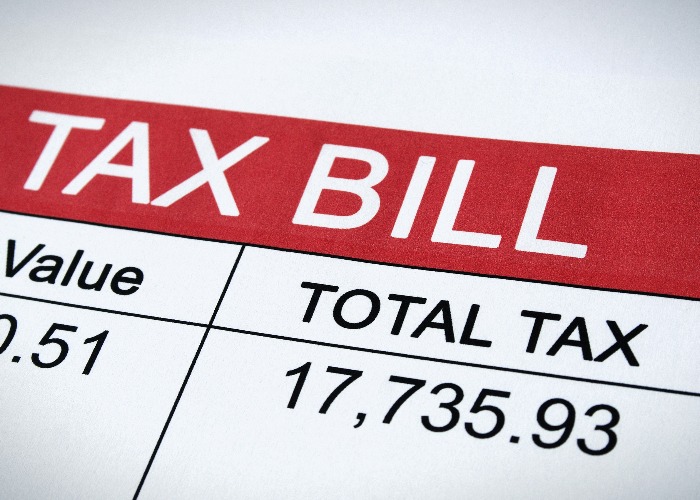Stealth taxes: Government sees sharp rise in tax take

Freezing tax thresholds has helped the Government pocket vastly more tax. This has made saving into a pension far more attractive for many workers.
The Government has targeted boosting its tax receipts through the freezing of tax allowances and thresholds.
The thresholds at which we move from paying the Basic Rate to the Higher Rate or Additional Rate of Income Tax for example have been set in place until April 2028.
The thinking is that, as wages increase over time, more and more of us will start to transition into those higher bands.
It means the Government can increase its tax take without having to formally increase the rate of tax charged, which is why it’s called a stealth tax ‒ many of us won’t even realise that we end up handing over more cash to the taxman each year because of it.
And as a strategy, you have to admit that it’s working a treat.
Benefiting from the big freeze
New data from the Government shows that the money brought in through Income Tax between April and June this year has risen by a whopping 13.2% compared with the same period of last year.
In cash terms that’s an extra £9.9 billion.
It’s not just Income Tax that has delivered such substantial jumps in returns though.
On Inheritance Tax for example receipts year-on-year have grown by 10%, representing an extra £237 million.
With Inheritance Tax, greater numbers of estates have fallen into needing to pay on account of the enormous house price growth seen in recent years.
And Corporation Tax has brought in an additional £4.3 billion, a jump of 17%.
Just looking at the month of July is fairly staggering ‒ the total tax takings of £80.7 billion is the highest ever for the month, and the fourth highest on record.
That the three bigger months were all Januarys, with the deadline for self assessments, is rather telling.
In fact, the only tax where takings are on the decline is Stamp Duty, and that’s the result of all of the upheaval in the mortgage market since the tail end of last year.
Budgets under strain
Alice Guy, head of pensions and savings at interactive investor, noted that the fact Income Tax has risen by more than wages over the last quarter demonstrates how effective these frozen tax thresholds have been,
She added: “If we feel poorer, it’s partly due to the cost-of-living crisis but it’s also due to a bigger tax bill as frozen thresholds mean that more and more of our income goes on tax over time.”
And that’s a crucial point.
It would be one thing of the Government was embracing this stealthy approach to tax when the economy was on the up, and when households across the country were in a relatively comfortable position when it comes to money.
But the position we’re in could not be more different.
Our finances are under enormous pressure already ‒ inflation has been at eye-wateringly high levels for an extended period of time, as we face much bigger outgoings on things like food, energy, petrol, broadband bills and the like.
Even if your salary has gone up, you may be worse off because of these rising bills, even before you have to see a larger slice of your income making its way into the Treasury’s coffers.
At a time when millions of people are absolutely desperate, the Government has dramatically increased the amount of money it takes from people.
Pension saving just became more attractive
While the Government have obviously been the big beneficiaries of the frozen tax thresholds, it’s true to say that there is an opportunity for some of us to turn it to our benefit too, specifically when it comes to pension saving.
When you contribute into a pension, the money you pay in is topped up by the Government in the form of tax relief.
And that tax relief varies based on your Income Tax band.
As a result, contributions for Basic Rate taxpayers enjoy 20% tax relief, Higher Rate taxpayers get 40% and Additional Rate taxpayers benefit from 45%.
So if you have moved into a higher tax band, while that will be a blow in terms of your income, it will mean that your pension contributions get a bigger top up from the taxman, providing you with a boost in retirement.
While this makes saving into a pension more attractive, it’s worth noting that taking advantage of the additional tax relief is not as straightforward as it could be.
Only the Basic Rate of tax relief is paid automatically ‒ you will need to manually claim the higher rate, likely through your tax return, and then be disciplined enough to move that money into your pension once the taxman pays it into your account.
Comments
Be the first to comment
Do you want to comment on this article? You need to be signed in for this feature
